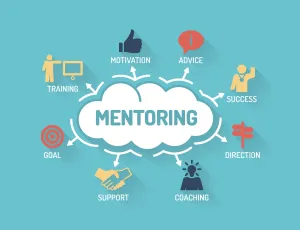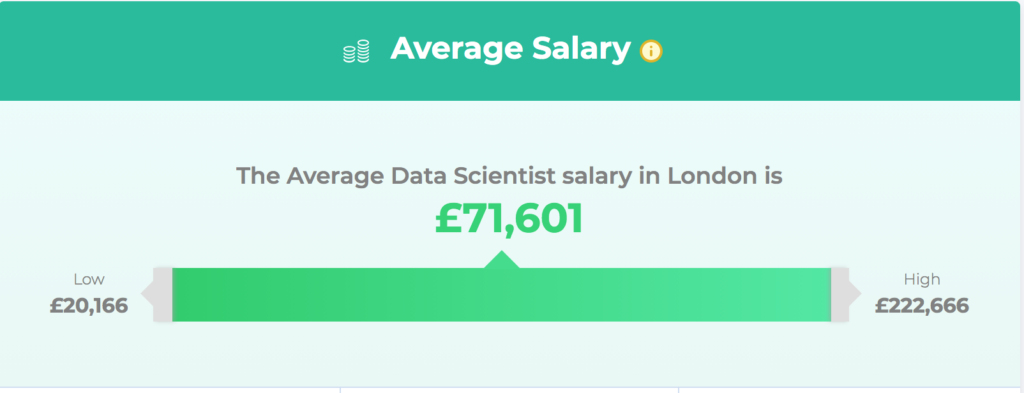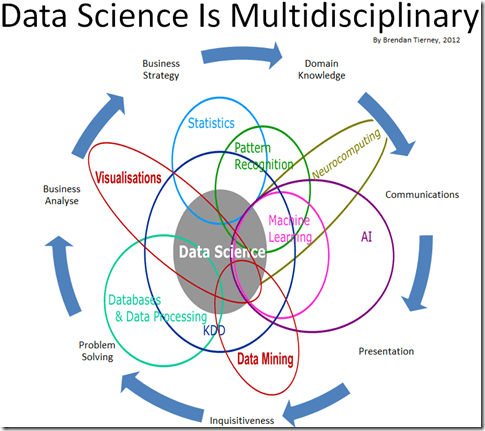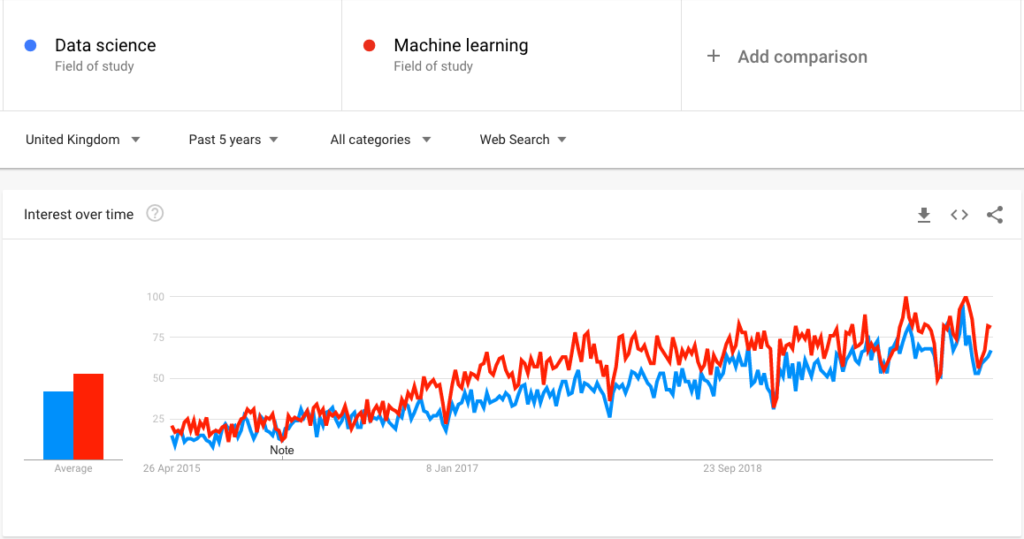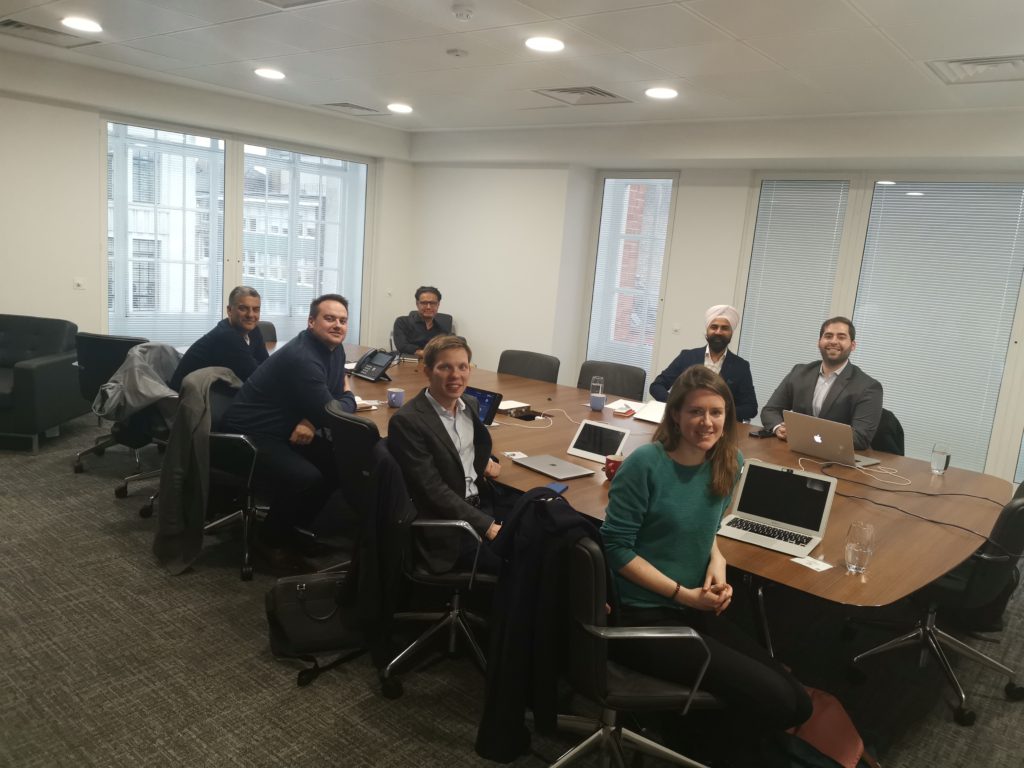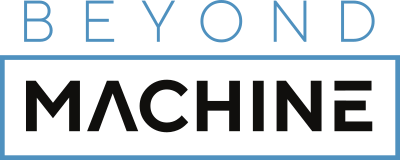Getting a job in data science
Let me ask you a question, what do the following categories of people have in common:
- University students
- STEM graduates
- Humanities graduates
- Professionals over the age of 30
- Moms returning to work
Many of these people want to become data scientists! And this comes at no surprise.
Data science is still one of the most lucrative careers out there. Data science salaries can easily go up to 6 figures and they include lots of benefits like flexible working hours and other perks, like a very interesting working environment, a great job market, and the opportunity to work in a very mentally stimulating field.
Getting a job in data science in very difficult if you know which steps to take. The problem is that most people follow the same steps, without a clear plan.
Mistakes people make when trying to become data scientists
Let me guess, if you are reading this article you probably have taken some steps towards learning data science. The things that people usually do are:
- Join 1-2 courses on Coursera
- Maybe do a course on Udemy
- Maybe follow a free tutorial or two on Python
These steps are great, and they are a very good start.
But alone, they are not enough. How I know this? Well, I’ve been contacted by 10s of students over the last 12 months, alone, asking me how they can get a job in data science. And all of these students took the exact same steps that I outlined above. So, let’s see what is wrong.
Problem 1: Data science is a vast field
Data science is not a single field. It is actually a term that was created to blend different fields together. The following depicts the different disciplines that go into data science.
As you can see the term “data science” encapsulates many many different disciplines, from AI to statistics to data mining. This is one of the reasons curricula in data science can be so much all over the place. Some curricula focus on things like deep learning. Others focus on things like teaching you specific tools, like scikit-learn. For someone starting out, this can be utterly confusing. Even more important, it is not clear what you should focus on in order to get a job in the field!
Problem 2: Understanding data science in depth requires years of study in topics like probability theory, optimisation, and information theory.
Fully understanding a field in depth takes many years of study. There is this famous saying that it takes 10,000 study hours, before you can call yourself an expert in a field. Obviously, getting a job in data science, might not require you to reach the level of a super expert. But you still need to have a good enough understanding of the field, to the extent that you can be comfortable working in it. Also, you need to have a good enough understanding of the field, so that you know what to focus on as you progress in your career.
Unfortunately, just joining a few random courses, doesn’t help you with this aspect. You will miss the forest for the trees, and end up knowing only about a few specific techniques, with no proper understanding of how everything ties together.
Problem 3: Getting a job in data science, requires you to show that you can actually add value to a company
Knowing about data science is only half the battle. What is most important is to know how to add value to a company. And this is something that is not always easy to do. Maybe you have a PhD, but this does not help you land the job you want in an industry (e.g. finance), because people are not convinced that you understand the industry. This gets to the next point about how the job market works.
How the job market works
The job market works a bit like a video game. People know initially know nothing about you. So, when they are looking to hire someone they are looking for “signals” as proxies of the attributes they are looking for. It impossible to fully know someone until you’ve worked with them for a long time. So, all these attributes are signals that work like points in an employer’s head
- Type of degree someone has studied.
- Prestige of a university
- Work experience
- Relevant project work
- Specific skills needed in a role (e.g. experience with certain technologies or programming languages)
- Presentation during an interview
- Performance during an interview
Some employers might also add some other criteria or might ignore some of the criteria above. But in general, most employers will think in a way like:
- PhD: +2 points
- No experience: -1 points
- Good knowledge of Python: 1 point
I am not saying that people are actually counting those points in their heads, but this is how they are thinking about the problem, at least on a subconscious level.
Data science and machine learning are becoming more and more popular
How does this relate to you trying to get a job in data science
There are quite a few challenges that you’re faced when you are trying to convert to data science:
- Everyone has done online courses, so these alone are not going to give you enough credibility
- If you want to do a university degree, then you end up with a huge bill. Plus these degrees take 1-2 years to finish.
- Taking a bootcamp will not necessarily convince employers that you actually understand how you can help them out.
However, if I want to get a new job or a project in the space in data science, it is probably going to take me only a few weeks. Why? Well, there are a few reasons for that:
- I have a vast network.
- I have a ton of credibility through my academic achievements.
- I have lots of work experience.
- I have lots of things to show in my portfolio, including books I’ve written.
But, obviously, it took me more than 10 years to cultivate this. The question is, how can you work towards that level, without having to spend all these years and at a fraction of the effort?
That is, how can you make sure that:
- You learn data science as fast as possible
- Land easily jobs in data science.
- You know how to make employers understand the value you bring to their company…
- …and actually deliver this value!
Photo from an old class I held on data science
The solution? Mentoring!
This is where mentoring makes a huge difference.
You know why employers value experience so much? Because experience matters.
Think about your personal or professional life. I am sure that if you could go back, there are many things you would differently if you had the possibility, correct? This is what comes with experience.
Experience gives you the ability to see a plan, where others see chaos.
Right now, you are probably taking various steps trying to learn about the various methods and techniques in data science. Then, you might start applying to jobs to get a feel for the market. And then, you hope you will get a job. But you know that you are not confident enough for those interview, and probably this shows in the results you’re getting. So, you feel a bit lost. Should you just take more Coursera courses? Maybe you should just try to learn more tools? What is the solution?
This is where a mentor comes into play.
A mentor can help you:
- Understand the vast field of data science.
- Create a personalised learning plan for you.
- Prepare you for those job interviews.
Think about all great athletes. Behind every great athlete there is always a great coach. Would Michael Jordan become who he is without Phil Jackson? He would still be one of the greatest, but maybe not as we came to know him.
Data science is no different. That’s why I like to offer a really personalised mentoring service for my programs. The challenge is that I can only do that for a limited number of people at a time. I wish I could do it for everyone, but in between all my projects, I just have limited capacity. So, I have to keep the circle of my mentees small, so I can ensure the quality of the mentoring remains high and the service is personalised.
Do you want to become data scientist?
Do you want to become a data scientist and pursue a lucrative career with a high salary, working from anywhere in the world? I have developed a unique course based on my 10+ years of teaching experience in this area. The course offers the following:
- Learn all the basics of data science (value $10k+)
- Get premium mentoring (value at $1k/hour)
- We apply to jobs for you and we help you land a job, by preparing you for interviews (value at $50k+ per year)
- We provide a satisfaction guarantee!
If you want to learn more book a call with my team now or get in touch.

